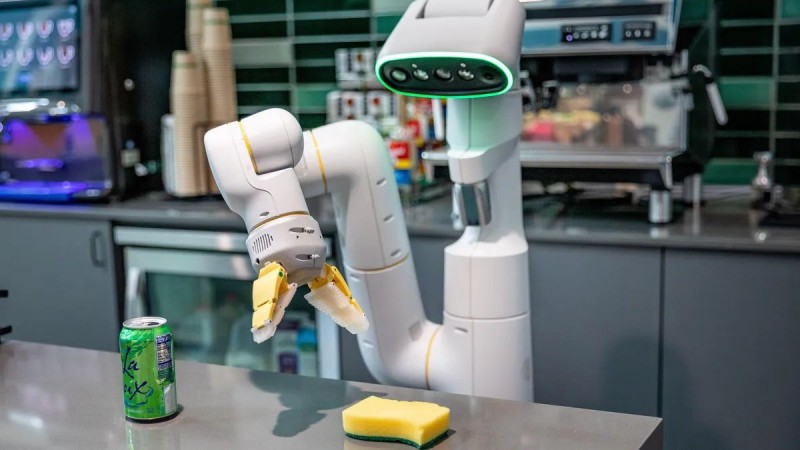
New Delhi:- One of the first things you discover in the robotics world is the complexity of simple tasks. Things that seem simple to humans hide endless variables that we take for granted. Robots have no such luxury.
This is precisely why much of the industry focuses on repeatable tasks in a structured environment. Fortunately, the world of robotic learning has seen revolutionary breakthroughs in recent years, and the industry is on the cusp of creating and implementing more adaptive systems. Last year, Google's robotics team DeepMind introduced Robotics Transformer - RT-1 - which trained its Robotics systems on a daily basis to perform tasks like picking, placing and opening draws. According to the team, the system is based on a database of 130,000 demos, resulting in a 97% success rate for "more than 700" tasks.
Today, he revealed the RT-2. In a blog post, DeepMind Distinguished Scientist and Head of Robotics, Vincent Vanhoucke, explains that the system allows the robot to transfer concepts learned on relatively small data sets to different situations effectively.
Also Read:- Anthropic, Google, Microsoft, and OpenAI Launch Frontier Model Forum for Safe and Responsible AI Development
"RT-2 demonstrates advanced generalization capabilities as well as semantic and visual insights beyond the robot data it has been exposed to," Google explains. "This includes interpreting new commands and responding to user commands by performing rudimentary inferences, such as inferences about object categories or high-level descriptions." The system effectively demonstrates the ability to determine things like the best tool for a particular new task based on existing contextual information.
Vanhoucke cites a situation in which a robot was asked to take out the trash. In many models, the user must teach the robot to identify what is considered garbage, and then train it to pick up trash and dispose of it. That's an unscalable level of thoroughness especially for systems that are expected to perform a wide range of different tasks.
Also Read:- Google Doodle Honors Belgian Educator Isabelle Gatti de Gamond's 148th Birthday
“Because RT-2 can transfer knowledge from large amounts of web data, it already has an idea of what junk is and can identify it without explicit training,” Vanhoucke writes. "He even had an idea of how to dispose of the garbage, although he was never trained to take that step. And think about the abstract nature of waste - a bag of crisps or banana peel becomes waste after you eat it.RT-2 can figure this out from its visual language training data and get the job done.
The team claims that the efficiency rate when performing new tasks has increased from 32% to 62% when switching from RT-1 to RT-2.
Also Read:-Pebble to Revolve around India with great Amplification soon
Google has hired a team that will teach the robots all the daily life novel tasks and also let them perform so that to help them revise all that and to perform it daily in a very well mannered.